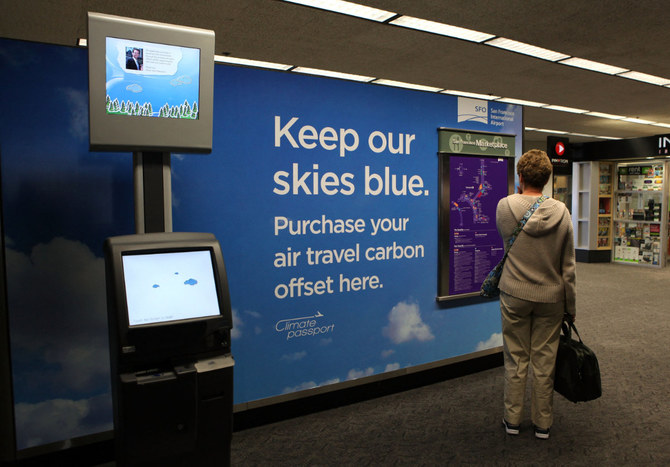
An investigation by European media houses — British newspaper The Guardian, German weekly Die Zeit and SourceMaterial — in January concluded that there are gaping holes in the program of carbon offsets used by Verra, the world’s leading carbon credit certifier. The report indicated that more than 90 percent of the company’s rainforest offset credits do not represent genuine carbon reductions.
Following the publication of the report, Verra, which dominates this rapidly growing market that is valued at $2 billion a year, last week said it would scrap the system by 2025 and introduce a significantly different mechanism to prevent misuse or abuse.
The serious loopholes found in Verra’s certification program is just the latest scandal to hit carbon offset schemes since they were launched more than three decades ago. The idea, proposed and propelled by the big industry lobby in the developed world — Big Oil, steelmakers, carmakers and food companies — was always viewed with huge suspicion by environmental activists. They have accused the big corporations, with increasing proof, of simply cheating and lying when it comes to carbon offsets or carbon trading.
The system is without any checks and balances and looks custom-made for fraudulent claims to pass through. Basically, it allows a big polluter, say Shell, to “offset” its carbon emissions from its oil wells in the North Sea by undertaking, financing or part-financing, or basically having any role in certain measures in faraway Burundi or Cambodia. All the companies have to do is to show that they have committed a certain amount of their budget to organizations that plant trees, protect trees, harvest water or literally any other thing that can even remotely be passed off as environmental protection.
Big industry, as it is prone to do, has turned this activity into yet another revenue stream, with an extensive “stock market” of carbon trading, allowing a company that has excess carbon credits — meaning it did not pollute “enough” or it purchased carbon credits in some remote area — to sell them to another firm that has polluted more than it was “allowed.”
That the whole carbon trading/carbon offset system is a scam has long been evident to everyone except the regulators and the businesses. Organizations such as Greenpeace have been criticizing carbon trading and offsets for years, saying they are nothing but a huge invitation for polluters to continue polluting.
Environmental organizations say that governments have taken a back seat on the issue, pretending that carbon offsets actually lead to something, meaning there are no checks whatsoever on the claims of billions of dollars being “invested” in carbon offset programs being run by all and sundry all over the world. The calling out of Verra’s hugely flawed certification program is just the tip of the iceberg of malaise afflicting the global carbon offsets system.
Activists have accused the big corporations, with increasing proof, of simply cheating and lying when it comes to carbon offsets or carbon trading.
Ranvir S. Nayar
As the world hurtles toward climate catastrophe, governments can no longer afford to turn a blind eye to this fraud, since it is bound to increase significantly in the years to come as countries and companies race to meet their commitments to cut their carbon footprint by the first deadline of 2030, as set by the UN Framework Convention on Climate Change. The world’s carbon emissions are meant to go down by nearly half by that time. However, not a single country seems to be on track to meet that target.
This means that an increasing number of companies and countries will be tempted or forced to use the carbon offsets system to show that they have curtailed their emissions. Hence, the opportunity for fraud on a much larger scale will be increased, since for the most part it is still a voluntary system.
Since it involves billions of dollars changing hands every year, and with the amount set to rise much higher in the years to come, it is highly likely to attract all kinds of shady dealings and could even attract criminals or money launderers, since it is an area where the two parties’ word — the company that is trying to offset its emissions and the organization that is meant to ensure the money is used to protect the environment — is taken at face value. One can be sure that thousands of skeletons will tumble out of these closets whenever, or if ever, they are checked by regulators or independent auditors.
Governments owe it to themselves and their citizens to intervene rapidly and either scrap the system or create a framework of checks and balances, whereby the carbon offsets are determined in real terms and on the ground, not by an estimate or a mere piece of paper issued by a company whose interests lie in generating more and more such certifications.
An intervention is becoming ever more urgent as, over the past few years, a number of companies and organizations have started reaching out to consumers for a contribution to reduce their own carbon footprint. This is the kind of system that Verra has been overseeing. It is now commonplace for airlines to add a small voluntary contribution by travelers to “offset” the carbon emitted during their flight, or for a garment maker to offer supposedly carbon-neutral clothes.
In both of these cases — and almost any other similar case — the consumer has to place blind faith in the company that is asking for a contribution. They have little or no knowledge and certainly no control over how that money is utilized. This is a scheme that is primed for fraud due to these limitations and the widespread appeal to consumers of wanting to do their bit to fight climate change.
The sooner the world’s governments take their heads out of the sand and look at the market, the quicker they can save their citizens and the planet from being ripped off. What is desperately needed is a reduction in carbon emissions, not some fudged accounting, which is what carbon offsets are.
• Ranvir S. Nayar is managing editor of Media India Group.












